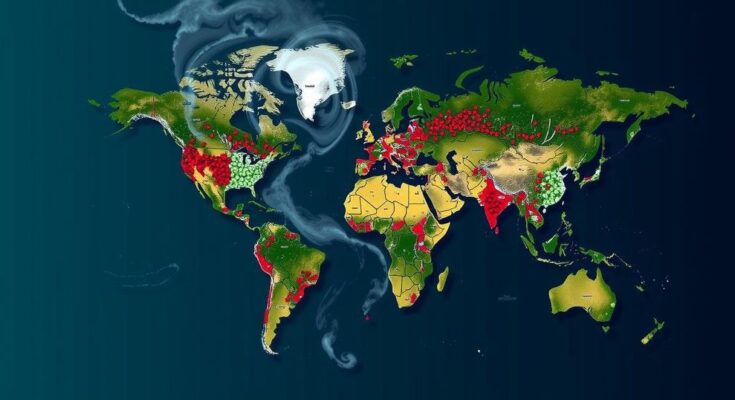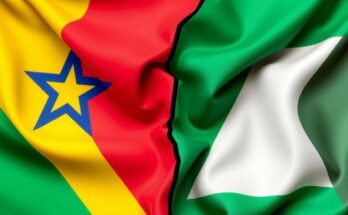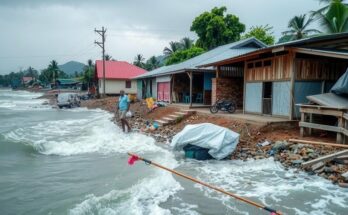Egypt has achieved a significant milestone by being certified malaria-free by the World Health Organization, marking the end of a long battle against the disease. Meanwhile, Cuba is facing severe power outages due to a tropical storm, with the UN poised to provide assistance. In Mozambique, political unrest has arisen following the assassination of opposition leaders, prompting calls for calm and investigation. Lastly, the WHO is responding to the humanitarian crisis in South Sudan due to devastating flooding impacting nearly 890,000 people.
The recent global health and humanitarian updates illustrate significant happenings across various nations. Egypt has officially received certification from the World Health Organization (WHO) affirming its status as malaria-free, a monumental achievement that concludes a century-long battle against the disease. WHO Director-General Tedros Adhanom-Ghebreyesus remarked, “Malaria is as old as Egyptian civilisation itself, but the disease that plagued pharaohs now belongs to its history and not its future,” highlighting the national commitment to eradicating this ailment. With this certification, Egypt joins a select group of only 44 countries worldwide recognized for achieving a malaria-free status. In Cuba, the situation remains precarious as a slow-moving tropical storm bears down on the island, exacerbating existing power outages that have left approximately 10 million residents in the dark. The UN has mobilized support to assist the Cuban Government, which is grappling with infrastructure issues and a prolonged trade embargo hindering necessary repairs. UN Deputy Spokesperson Farhan Haq noted that the storm’s slow movement could lead to severe flooding in various regions, warning that Cuba’s power infrastructure is under immense strain. Meanwhile, in Mozambique, UN Secretary-General António Guterres expressed concern and called for an immediate investigation into the killing of two opposition figures amidst electoral tensions. These deaths have sparked heightened unrest and Guterres urged for calm and restraint among political factions as the country awaits official electoral results. In South Sudan, the WHO is responding to an unprecedented flooding crisis affecting nearly 890,000 individuals. This natural disaster has hindered access to vital healthcare, prompting the distribution of emergency health kits aimed at managing the rising cases of malaria and suspected cholera. WHO has stated that floods, intensified by climate change, have led to significant humanitarian challenges in this strife-ridden nation.
The recent events highlighted in the news reflect key developments in health and humanitarian sectors worldwide. Egypt’s malaria-free designation is a landmark achievement, showcasing the effectiveness of public health initiatives over a century. The WHO’s certification is indicative of the broader fight against infectious diseases and sets a precedent for other nations. Cuba’s struggles with infrastructure failures and tropical storms emphasize ongoing challenges exacerbated by external pressures, particularly economic sanctions which impede recovery efforts. Responses from organizations such as the UN reveal a commitment to assisting nations during crises. Mozambique’s political landscape is marked by tensions following the recent elections, which underscores the importance of maintaining peace and stability in settings plagued by political unrest. The UN’s involvement showcases the organization’s role in mediating conflicts and promoting justice. In South Sudan, the convergence of climate-induced disasters and a pre-existing humanitarian crisis highlights the dire need for international support in emergency contexts. The emphasis on distribution of health kits signifies proactive measures to combat severe public health risks emerging from natural disasters.
In summary, these developments illustrate the multifaceted challenges facing various nations, from health triumphs to humanitarian crises. Egypt’s malaria-free certification marks a pivotal health milestone, while Cuba grapples with infrastructure issues exacerbated by natural disasters. In Mozambique, political violence necessitates urgent investigations, and South Sudan confronts a poignant humanitarian landscape amid severe flooding. The responses from global organizations underscore the international community’s commitment to support affected nations through technical assistance and emergency aid.
Original Source: news.un.org




